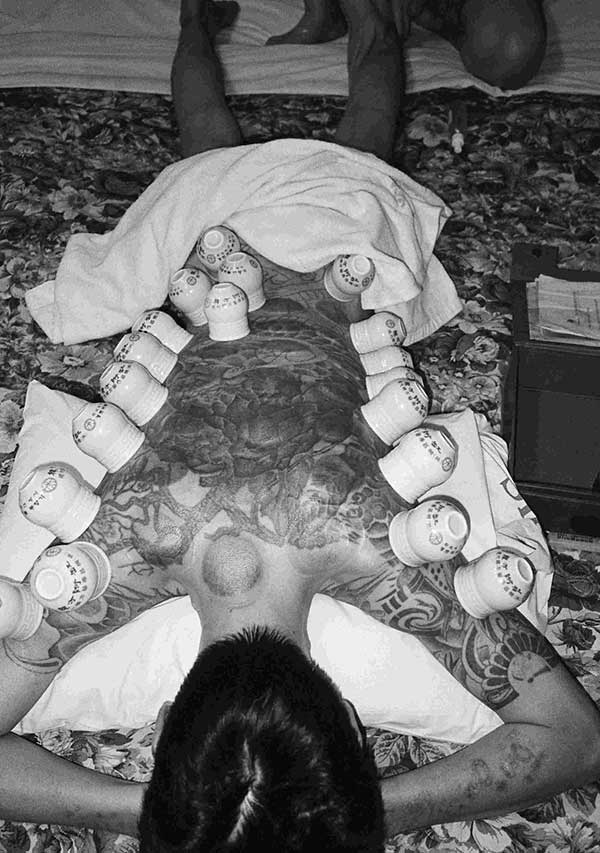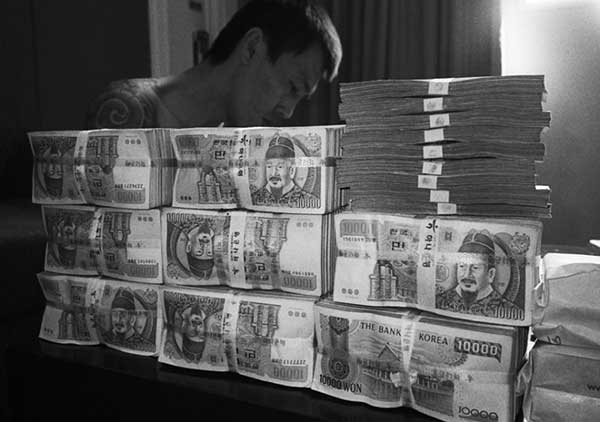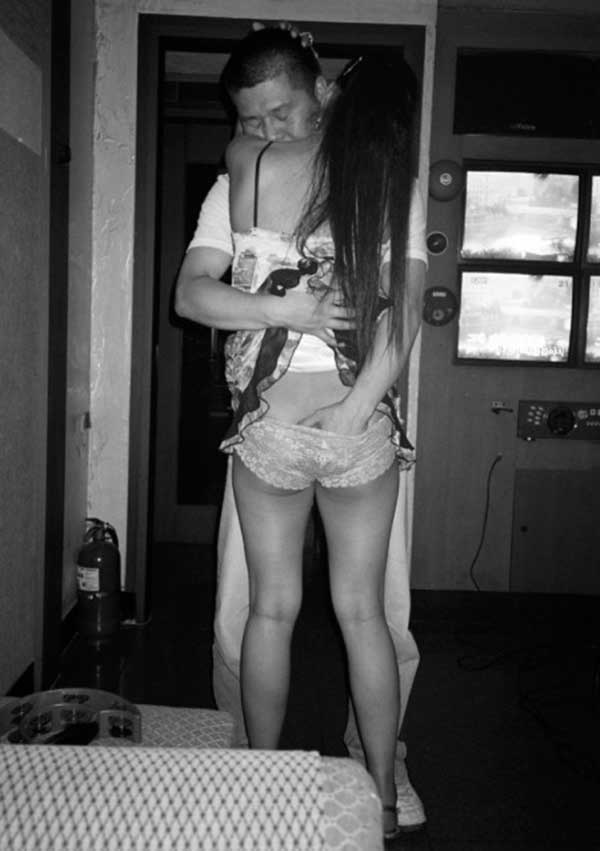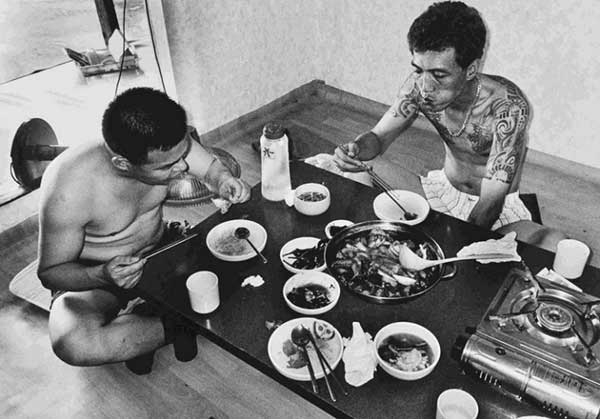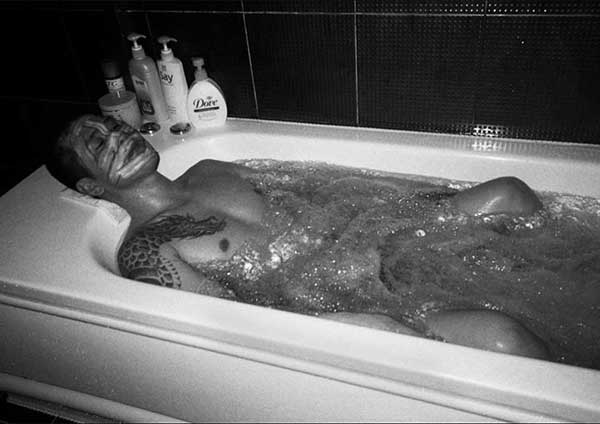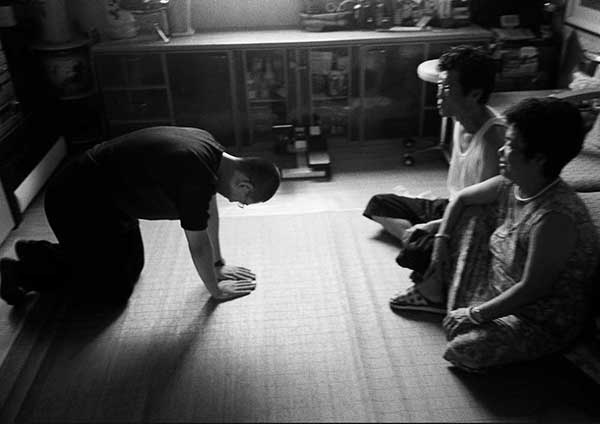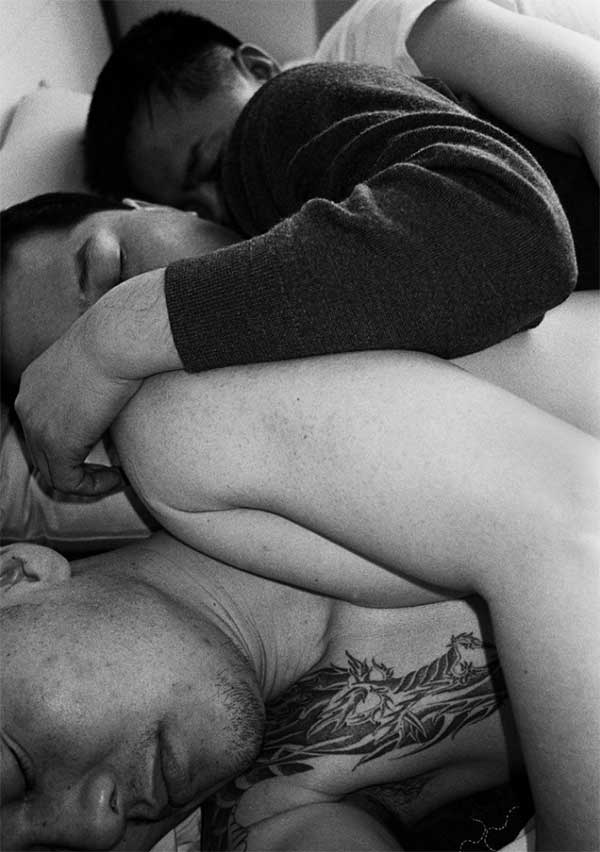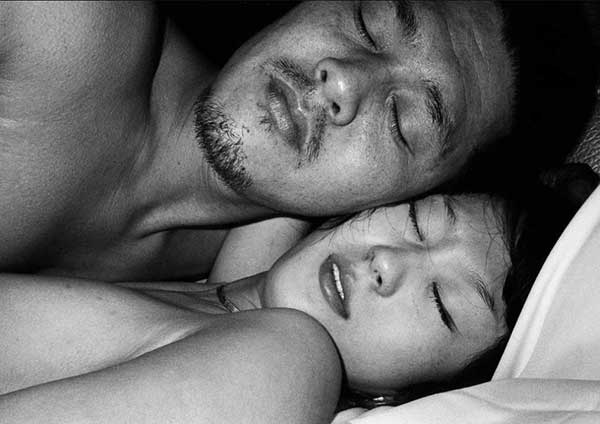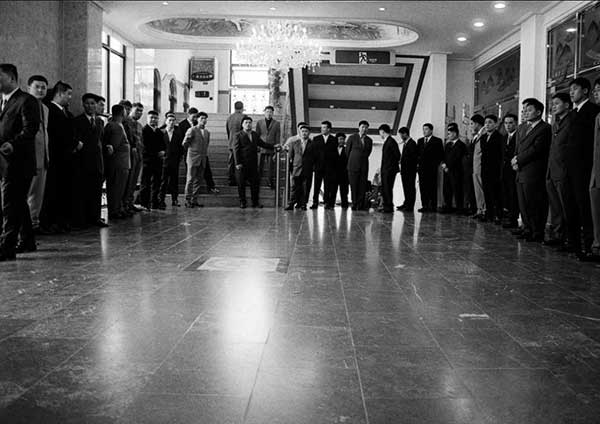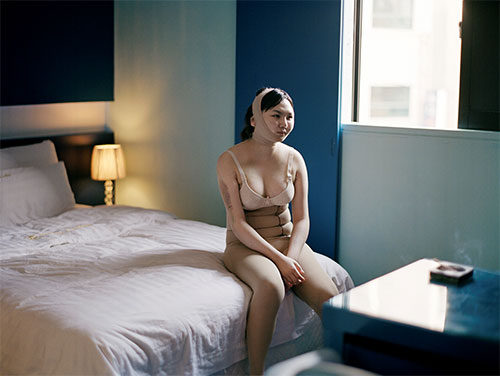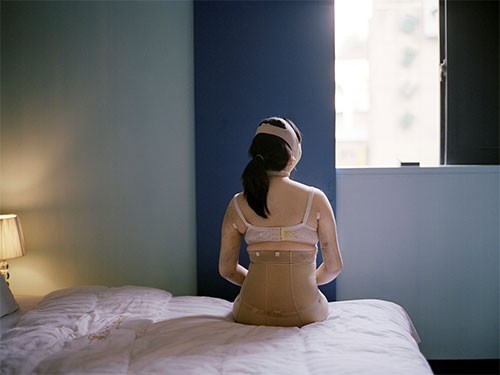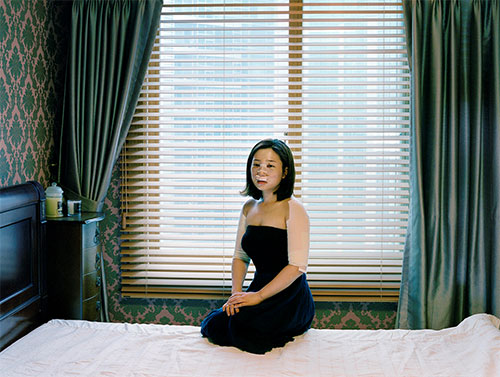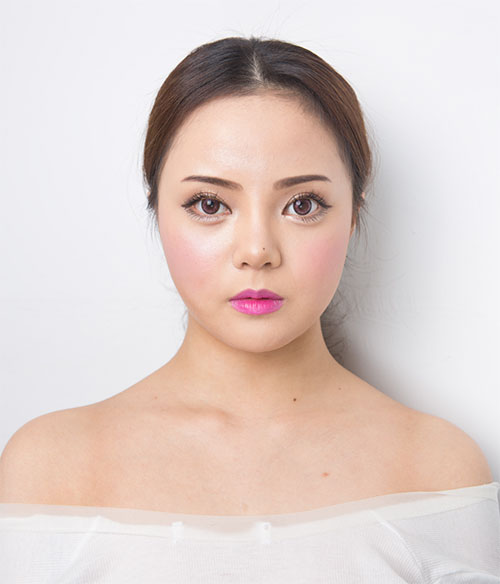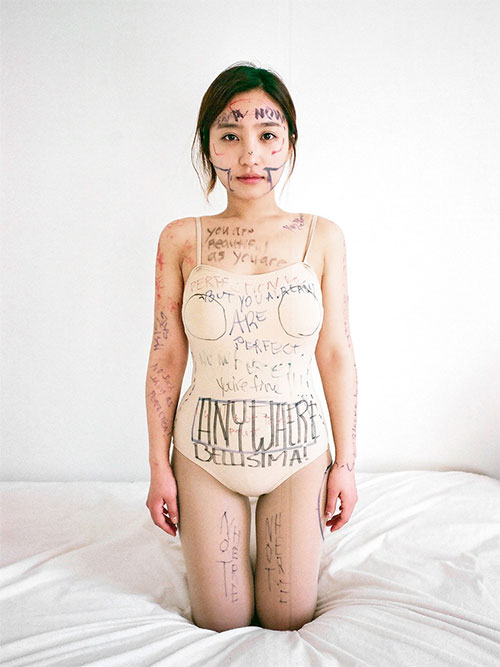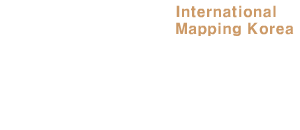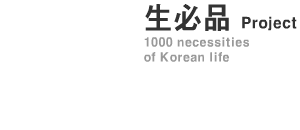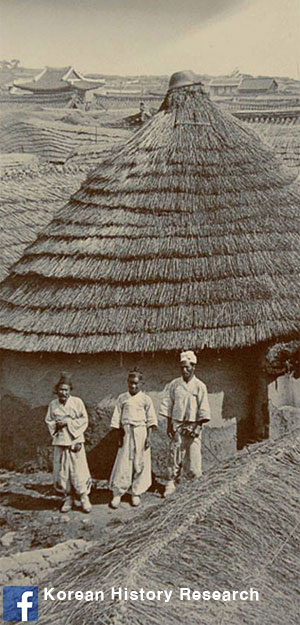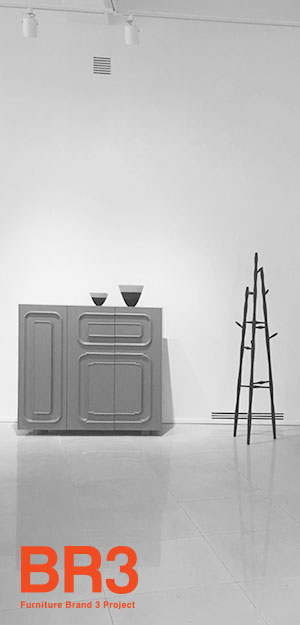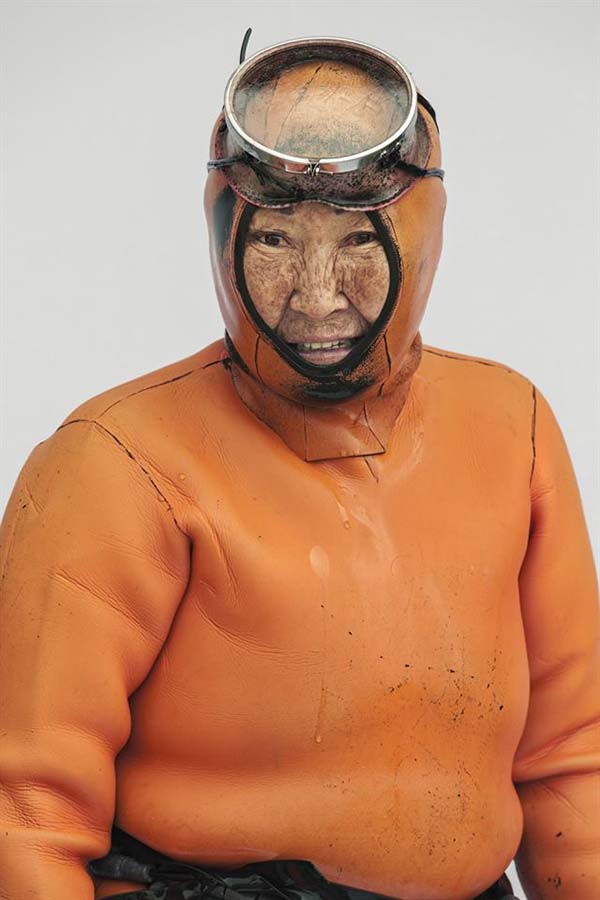
Kim Julja
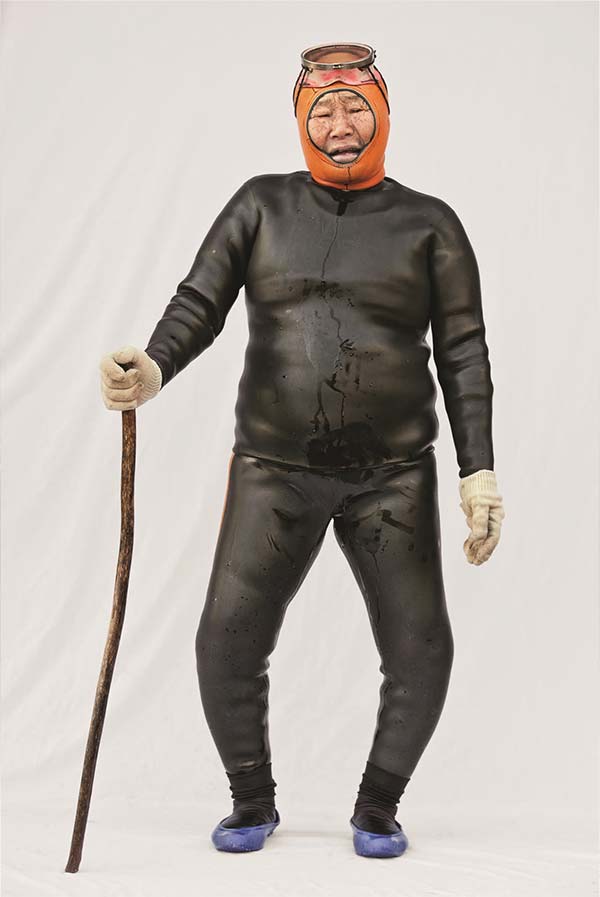
Sung Yongja
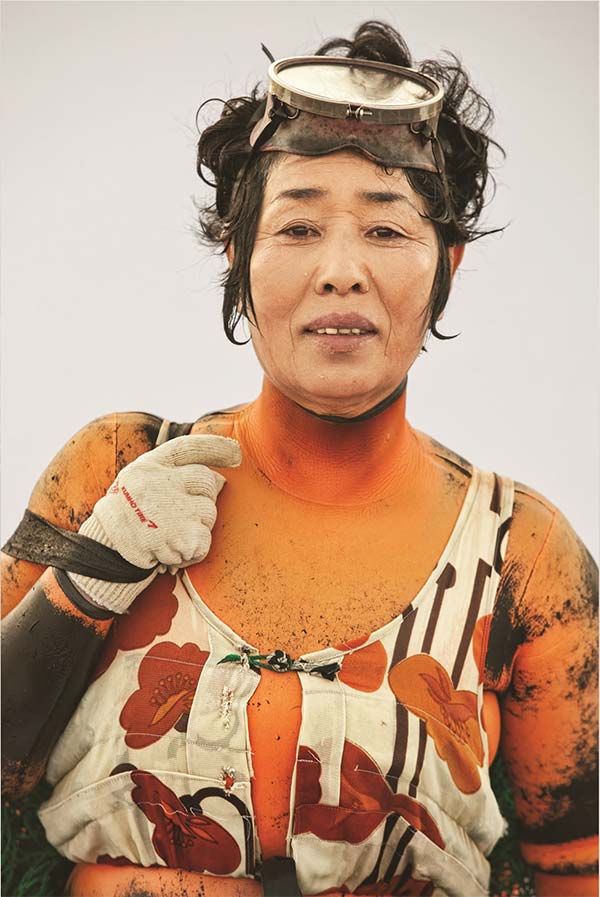
Kang Sunok
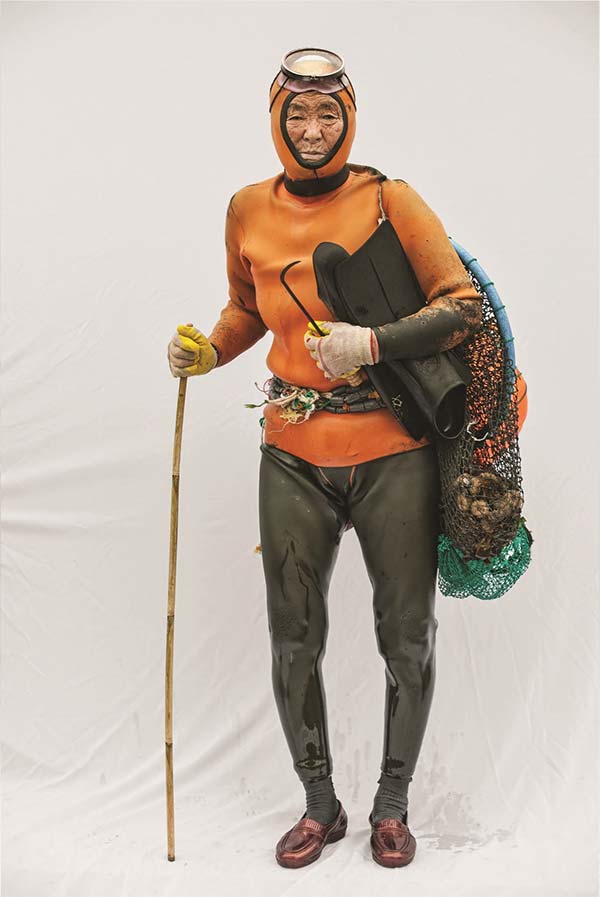
Jung Soonok
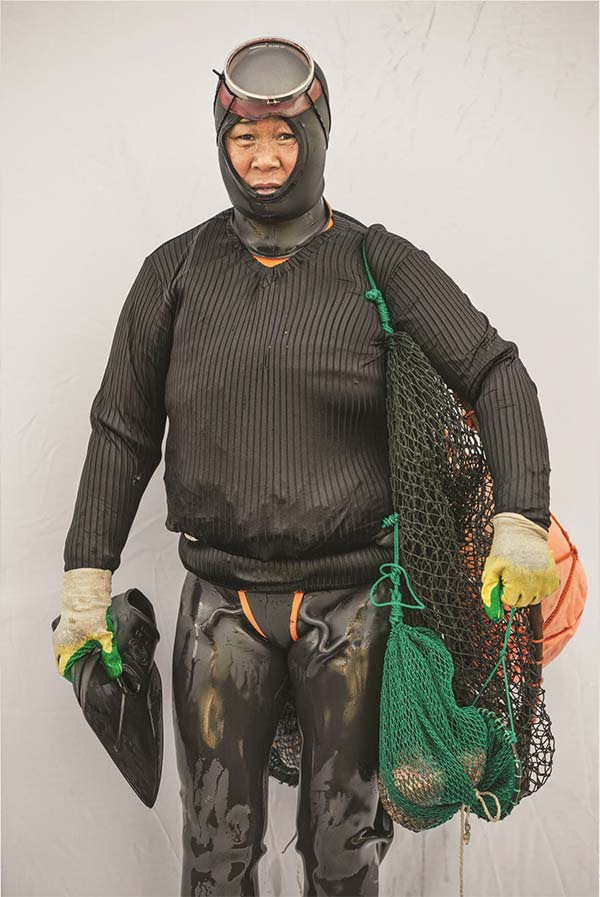
Ko Jungsoon
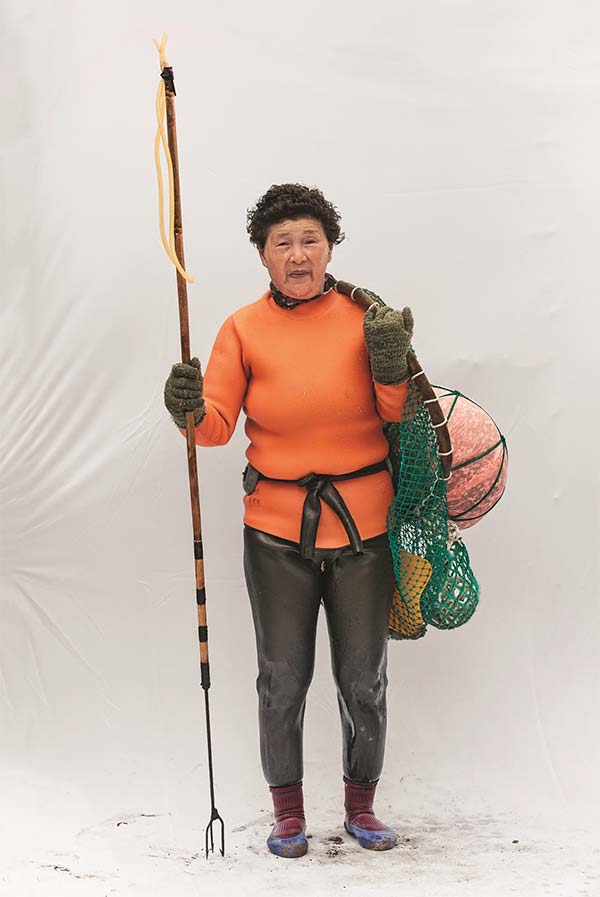
Oh Bonghee
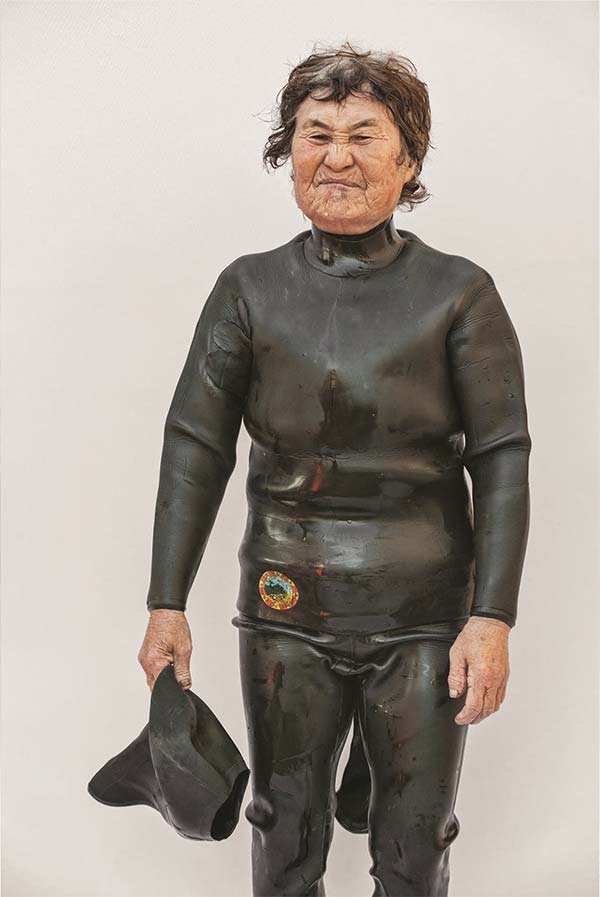
Ko Wallja
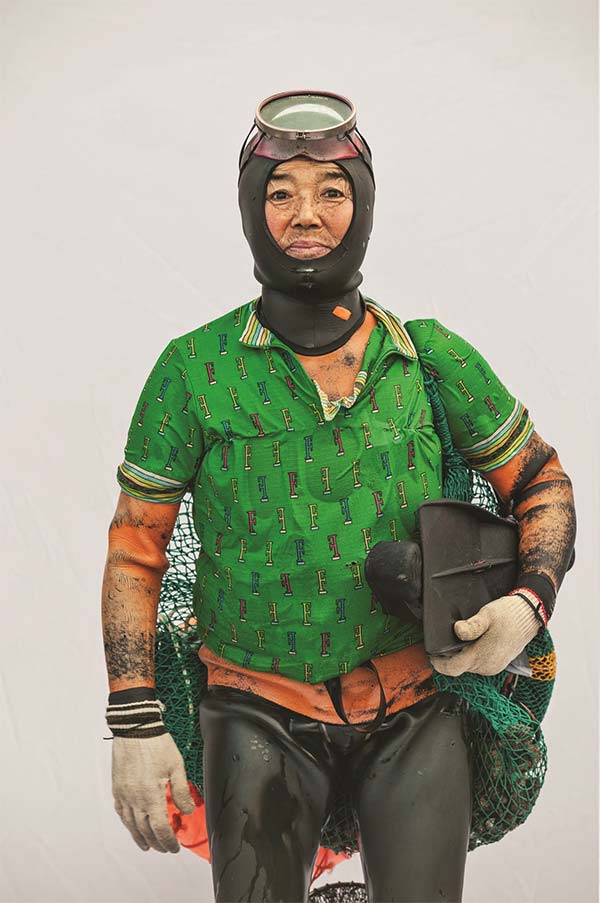
Hyun Okran
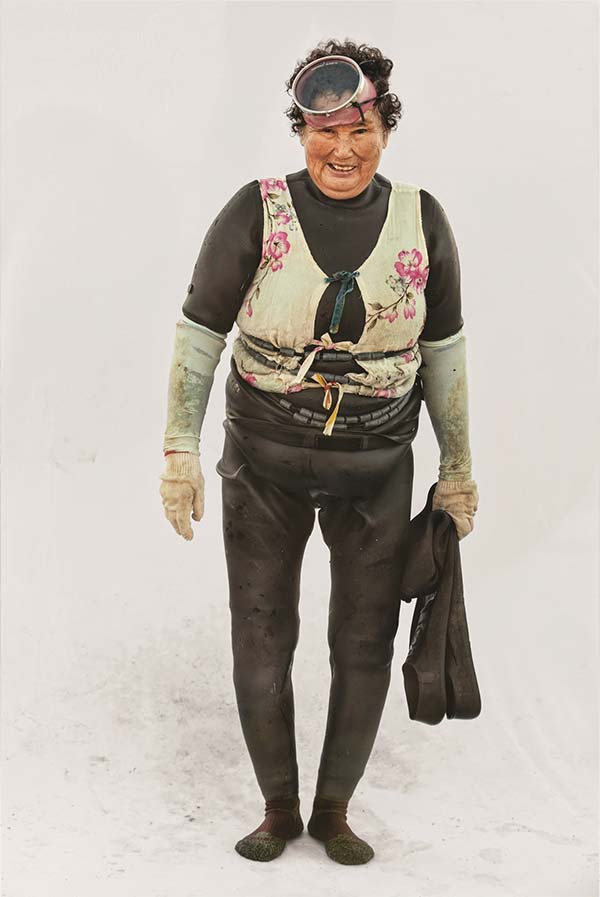
Kim Sanok
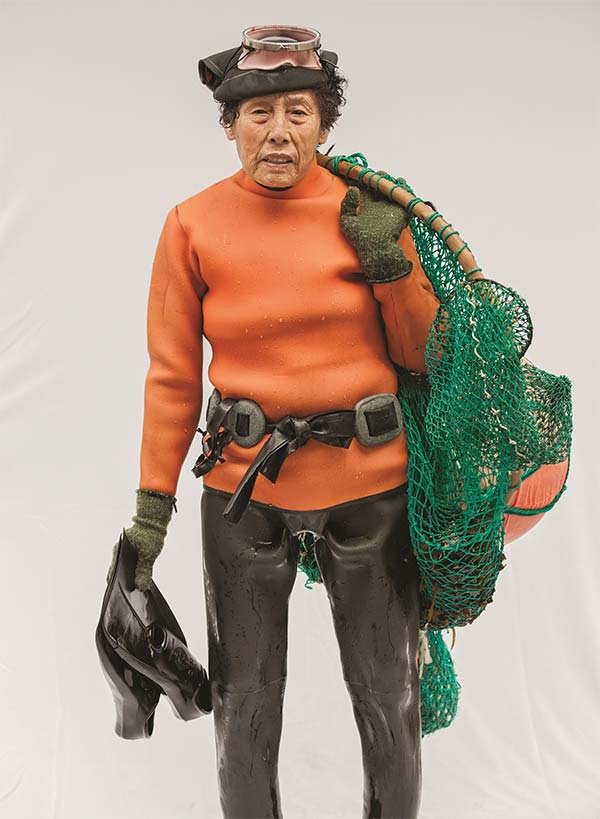
Yang Chunja
Hyungsun Kim (b. 1965) is another Korean photographer drawn to the sea. A successful commercial photographer, he became fascinated with the haenyeo, the women divers centered on the southern island of Jeju, and spent time from 2012 to 2014 photographing them. His 19 prints present the women in color and life-size, shot in their black or orange wetsuits against a plain white backdrop that separates them from their environment but makes each a vivid presence.
Haenyeo begin training at age 8, and at 15 start diving for abalones, conchs, sea cucumbers and hijiki, a sea vegetable that grows along rocky coastlines. They use no breathing devices, but can stay submerged for one to two minutes. There are 4,900 haenyeo registered in the Jeju Province, although only about 2,500 are working, and most of them are 60 or over. The work is physically demanding (many of the women take sedatives or painkillers) and dangerous, so young women today are more likely to go to the city than to the sea. The youngest diver in the exhibition appears to be about 30, but most are considerably older and their faces are records of their hard lives.
Their faces are creased, but Mr. Kim shows they are tough and spirited women. He photographed them at the end of their workday, when their suits and hair were still dripping wet, and their expressions alternate between exhaustion and a sense of accomplishment. It is not surprising that haenyeo have their own gods and rituals.
“For me, the photos of the haenyeo reflect and overlap with the images I have of my mother and grandmother,” Kim says. “They are shown exactly as they are, tired and breathless. But, at the same time, they embody incredible mental and physical stamina, as the work itself is so dangerous; every day they cross the fine line between life and death. I wanted to capture this extreme duality of the women: their utmost strength combined with human fragility.”
Hyungsun Kim

